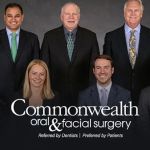Does Nutritional Deficiency Increase the Risk of Oral Ulcers?
Mouth ulcers are painful, open sores that can disrupt daily life, making activities such as eating and speaking uncomfortable. For Americans, these sores are a common affliction, often linked to various causes, including stress and minor physical injuries. However, one notable cause that often goes unnoticed is nutritional deficiency. Research has shown that a lack of essential nutrients like vitamin B12, iron, and folate can significantly increase the risk of developing oral ulcers. Understanding the relationship between nutritional deficiency and oral health is crucial for prevention and management strategies, ensuring a healthier mouth and an improved quality of life.
The Role of Vitamin B12 in Oral Health
Vitamin B12 plays a crucial role in maintaining healthy nerve cells and producing DNA and RNA. Deficiency in this vital nutrient can lead to various health issues, including the development of oral ulcers. Studies highlight that individuals with vitamin B12 deficiency often exhibit symptoms like glossitis and recurrent aphthous stomatitis—medical terms for mouth ulcers. This occurs because Vitamin B12 is essential in cell reproduction and tissue repair, processes crucial for maintaining a healthy oral mucosa. For those at risk, particularly vegetarians and older adults who are more prone to B12 deficiency, supplementation or dietary changes may be necessitated.
Impact of Iron Deficiency on Mouth Ulcers
Iron deficiency is the most prevalent nutritional disorder globally, affecting nearly 25% of the world's population, including many Americans. Iron is vital for producing hemoglobin, which carries oxygen to the body's tissues. A deficiency can compromise the lining of the mouth, making it prone to infections and ulcers. Moreover, iron deficiency anemia is frequently associated with multiple oral health issues, including burning mouth syndrome. Remedies such as increasing consumption of iron-rich foods like red meat, legumes, and green leafy vegetables, or using iron supplements can be effective strategies to counteract this deficiency and reduce ulcer risks.
The Role of Folate (Vitamin B9) in Preventing Oral Ulcers
Folate, or vitamin B9, is another essential nutrient pivotal for DNA synthesis and repair, essential for maintaining the cells lining the mouth. Inadequate folate levels in the body have been correlated with an increase in oral ulcers, as these sores might develop from impaired mucosal regeneration. Pregnant women are especially susceptible to folate deficiency, thereby increasing their risk for mouth ulcers. Adding folate-rich foods like citrus fruits, whole grains, and fortified cereals to one's diet can support oral health significantly. Folate supplementation is often advised for those who struggle to obtain adequate folate from their diets alone.
Nutrition and Oral Health: A Comprehensive Approach
Oral health is a significant indicator of overall health, and various nutritional deficiencies directly impact it. Beyond vitamin B12, iron, and folate, other nutrients such as zinc and vitamin C also play roles in oral health. A balanced diet rich in these nutrients can bolster the body's immune system, enhance healing, and maintain healthy tissues for optimal oral health. It is essential for individuals, especially those with frequent oral ulcers, to evaluate their diet and incorporate a variety of vitamins and minerals.
Conclusion and Action Steps
In conclusion, the link between nutritional deficiency and oral ulcers is clear. To prevent these painful sores and maintain oral health, it is crucial to address potential deficiencies in nutrients such as vitamin B12, iron, and folate. Regular dietary assessments, incorporating nutrient-rich foods, and considering supplementation when necessary are proactive steps that can be taken. The Dentistry Toothtruth website is an excellent resource for understanding more about how nutrition impacts oral health and offers various strategies to enhance your diet for better mouth health. Maintaining a nutrient-rich diet not only reduces the risk of oral ulcers but also enhances overall well-being.




 Reve Orthodontics - Midtown Atlanta4.0 (258 review)
Reve Orthodontics - Midtown Atlanta4.0 (258 review) Commonwealth Oral & Facial Surgery Brandermill4.0 (57 review)
Commonwealth Oral & Facial Surgery Brandermill4.0 (57 review) All Smile Dental Center3.0 (31 review)
All Smile Dental Center3.0 (31 review) David A. Rice, DDS4.0 (186 review)
David A. Rice, DDS4.0 (186 review) Central Pennsylvania Endodontics, LLC5.0 (241 review)
Central Pennsylvania Endodontics, LLC5.0 (241 review) Dental Element - Roman Rozanov D.M.D., P.C.4.0 (134 review)
Dental Element - Roman Rozanov D.M.D., P.C.4.0 (134 review) The Importance of Oral Health Education During Pregnancy for a Healthy Pregnancy
The Importance of Oral Health Education During Pregnancy for a Healthy Pregnancy Best Tips for Brushing Your Teeth Properly for Healthy Gums: Essential Techniques for Oral Health
Best Tips for Brushing Your Teeth Properly for Healthy Gums: Essential Techniques for Oral Health Why Skipping Dental Checkups Can Lead to Bigger Oral Health Problems
Why Skipping Dental Checkups Can Lead to Bigger Oral Health Problems Advantages of Porcelain Dental Restorations
Advantages of Porcelain Dental Restorations How Can Diabetes Cause Tooth and Gum Problems? Preventing and Managing Oral Health Issues
How Can Diabetes Cause Tooth and Gum Problems? Preventing and Managing Oral Health Issues Healthy Habits for Promoting Good Oral Health and Hygiene: Tips for a Healthy Smile
Healthy Habits for Promoting Good Oral Health and Hygiene: Tips for a Healthy Smile